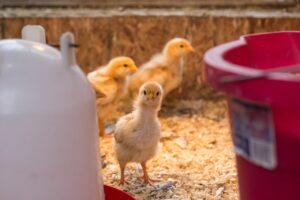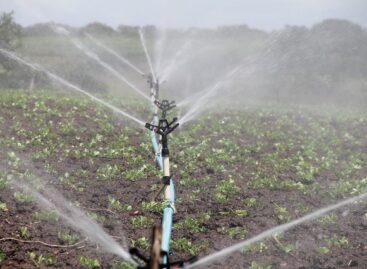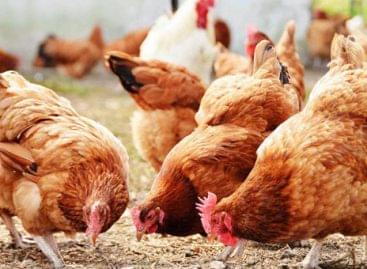The new EU proposal would be impossible for chicken and egg production
It would cause serious damage to the European Union, such as the Hungarian, chicken and eating egg producers, if the European Food Safety Authority (EFSA) had been implemented in the latest study of the European Food Welfare Package. According to the Poultry Product Council (BTT) and the National Chamber of Agriculture (NAK), EFSA recommendations take into account only animal welfare aspects, but do not expect serious environmental, economic and social consequences.

(Photo: Pixabay)
The most important task of the agriculture and the food industry, thus the poultry sector, is to provide consumers with sufficient quantities, quality, safe, affordable and environmentally sustainable foods. The proposals contained in the recent study of EFSA recently published can be violated. The Office’s document states recommendations to the European Commission regarding the animal welfare conditions of chickens and laying hens.
The serious anomalies of the EFSA study were also drawn by the European Association of Poultry Processors and Dealers (Avec)
The body also addresses the EFSA proposal that would reduce the stock density of broiler chickens with a drastic, unrealistic rigor. The recommendation would reduce the current value by more than 70 percent, which would create unsustainable farming conditions in animal husbandry. According to AVEC, the EFSA study, such as the ban on the EU-Conformation cage system, can cause an equally unsustainable situation in egg production. The EU is already one of the most stringent sets of requirements in European poultry production, both in terms of animal welfare and food safety. In addition, it does not control the same requirements for products imported from third country. According to the BTT and NAK, the change in the new proposal, not market (but legal), can have countless negative effects. The use of ever -narrowing resources (land, water, feed, energy, etc.) would become more wasteful, reducing the efficiency and competitiveness of unit product production, as well as drastically increasing environmental loads and costs.
In summary, the poultry sector would produce basic products in the future more expensive, less, with higher environmental loads, with higher food and food safety risk. This would create an unspecified production model that is contrary to the basic task of agriculture and the food industry, as well as consumer and social interests. The interests and security of European consumers and producers would be served by the strict control of import foods from third countries according to EU requirements.
BTT and NAK are strongly opposed to the recommendations in the EFSA study.
Related news
Not a turnaround, but consolidation: an agricultural outlook for 2026
🎧 Hallgasd a cikket: Lejátszás Szünet Folytatás Leállítás Nyelv: Auto…
Read more >Poultry meat imports fell in 2025
🎧 Hallgasd a cikket: Lejátszás Szünet Folytatás Leállítás Nyelv: Auto…
Read more >Related news
Davos 2026: the risk premium has appeared on store shelves
🎧 Hallgasd a cikket: Lejátszás Szünet Folytatás Leállítás Nyelv: Auto…
Read more >








